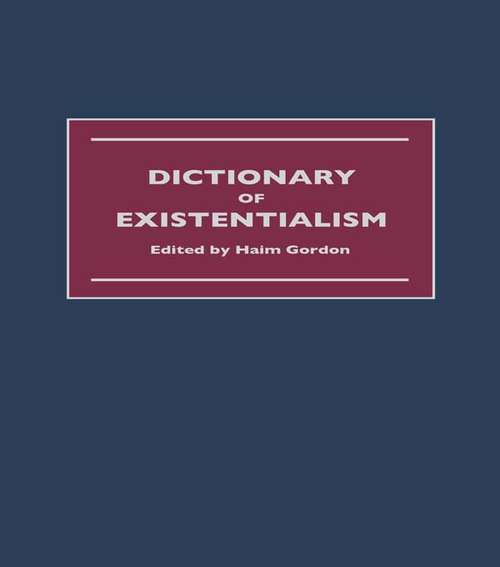Dictionary of Existentialism
By:
Sign Up Now!
Already a Member? Log In
You must be logged into Bookshare to access this title.
Learn about membership options,
or view our freely available titles.
- Synopsis
- Existentialism, as a philosophy, gained prominence after World War II. Instead of focusing upon a particular aspect of human existence, existentialists argued that our focus must be upon the whole being as he/she exists in the world. Rebelling against the rationalism of such philosophers as Descartes and Hegel, existentialists reject the emphasis placed on man as primarily a thinking being. Freedom is central to human existence, and human relations and encounters cannot be reduced simply to "thinking." This Dictionary provides--through alphabetically arranged entries--overviews of the various tenets, philosophers, and writers of existentialism, and of those writers/philosophers who, in retrospect, seem to existentialists to espouse their philosophy: Nietzsche, Kierkegaard, Dostoyevski, et al.
- Copyright:
- 1999
Book Details
- Book Quality:
- Publisher Quality
- Book Size:
- 700 Pages
- ISBN-13:
- 9781135948016
- Related ISBNs:
- 9781579581671, 9781315062716
- Publisher:
- Taylor and Francis
- Date of Addition:
- 10/11/22
- Copyrighted By:
- Routledge
- Adult content:
- No
- Language:
- English
- Has Image Descriptions:
- No
- Categories:
- Nonfiction, Philosophy
- Submitted By:
- Bookshare Staff
- Usage Restrictions:
- This is a copyrighted book.
- Edited by:
- Haim Gordon
